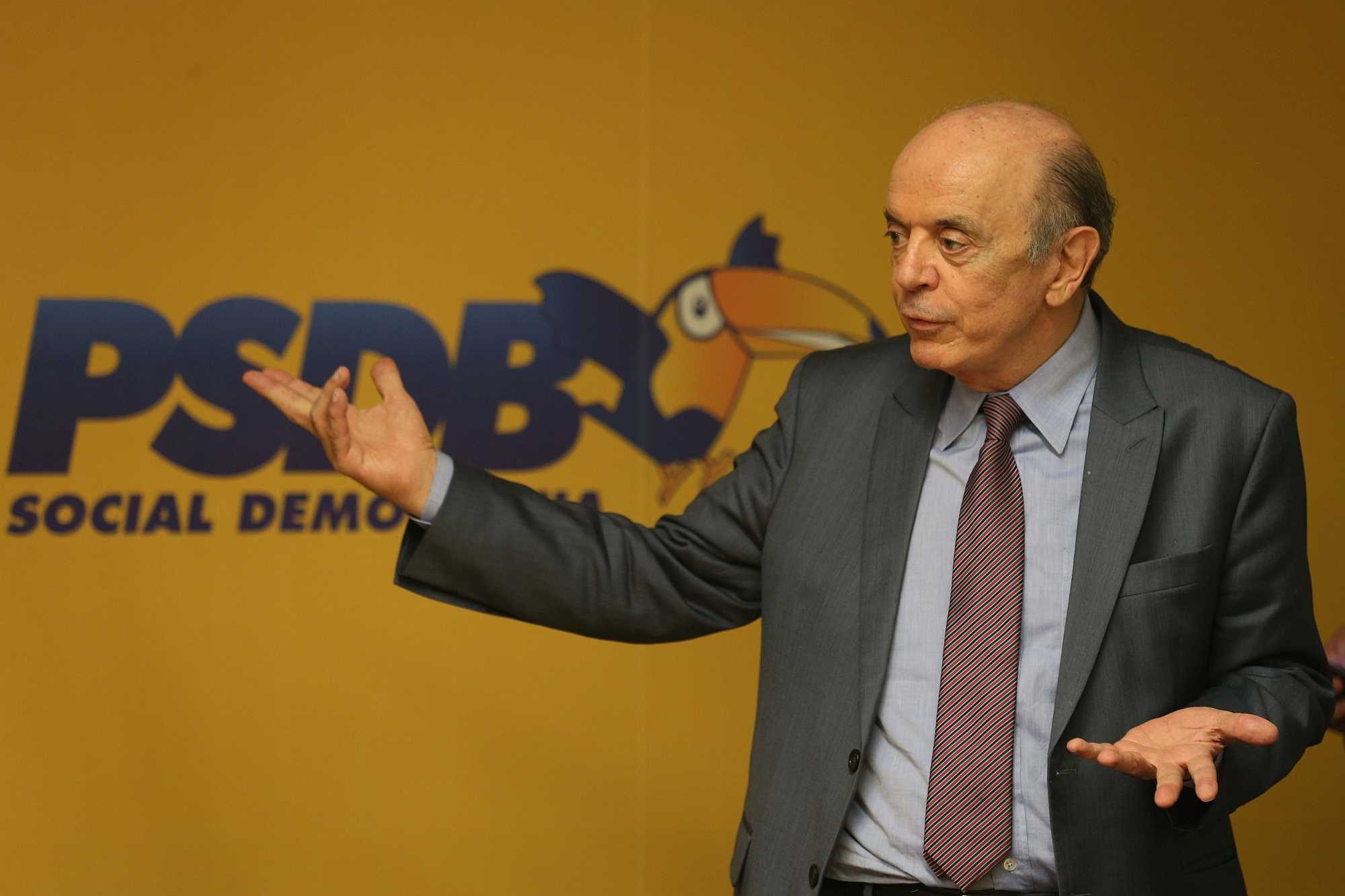The interim national president of Brazil’s PSDB party, Senator Tasso Jereissati, said on Monday (June 13) his party was staying in the coalition of President Michel Temer, but would weigh up the political situation each day.
“New facts keep coming up every day and we’ll monitor,” the senator said at the end of a six-hour meeting of the party’s national executive committee.
According to Jereissati, a majority within his party chose not to break ranks with the governing coalition at this time because it wanted to ensure support for the government’s austerity reforms in Congress, including an overhaul of the pension system.
The PSDB is the largest single party in the governing coalition apart from the ruling PMDB itself.
Talking about the outcome of a recent Electoral Court trial on the finance of Dilma Rousseff and Michel Temer’s 2014 re-election campaign, Jereissati said he thought the PSDB should appeal the acquittal. (The court dispute was filed by the PSDB, which is the party of the runner-up in the 2014 election.)
However, he said, the PSDB lawyers would rather wait until the acquittal ruling is officially published, then leave the matter for the party committee to decide. “We’ll stick with Temer’s coalition, but we’re not leaving our views aside. And I’m convinced there was corruption in the 2014 election.”
Jereissati admitted his stance might seem incongruous, but said he preferred to follow his convictions.
“There is certainly some incongruity to this, but we’ve been bound by history. This is not my government, nor the government of my dreams. I didn’t vote for either him [Temer] or her [Rousseff]. We’re in this together for the sake of stability. I would feel more comfortable with someone from the PSDB [in the presidency].”
About the possibility of the Prosecutor-General’s Office indicting Temer on the charges against him, Jereissati said the PSDB preferred to leave the party members in the Chamber of Deputies free to use their own judgment (a formal investigation of an incumbent president is subject to the approval of the lower house of Congress).
“There’s no closing ranks on that. There are mixed views within the party, so it’s up to each one’s own personal judgment rather than the party’s decision. If something really big comes up, we may change our minds and call a new meeting to discuss it again,” he said.
The PSDB party has five of its members in Michel Temer’s cabinet. It is the fourth-largest bench in the lower house (46 deputies), and the third-largest in Senate (11 senators) next to the ruling PMDB and the PT.
The national president of the PSDB, Senator Aécio Neves, was suspended by Supreme Court Justice Edson Fachin, the judge overseeing the Car Wash probe in the Supreme Court, following allegations that he had received kickbacks.
Supreme Court
Supreme Court Justice Edson Fachin decided to give the Federal Police an additional five days to finish an investigation on Brazil President Michel Temer.
The police said it would need more time to complete its investigation, which was prompted by President Temer being implicated by plea bargain testimonies obtained from executives of JBS meatpacking giant in the Car Wash corruption scandal.
Last Friday (June 9), Temer’s lawyer Antonio Mariz de Oliveira told Justice Fachin the president had declined to answer the questions submitted by Federal Police in writing.
Moreover, the defense asked the court to dismiss the case and criticized the questionnaire submitted by police commissioners.
In his ruling on Monday (12), Fachin also gave the Prosecutor-General’s Office (PGR) five days to state its position regarding the defense’s request to drop the case.
New Bill
Due to a holiday next Thursday (June 15), the meetings of the Chamber of Deputies to deliberate on bills, resolutions, and amendments to the Constitution will begin Monday (June 12) and run until Wednesday (14) (typically they are held on Thursdays, Wednesdays, and Thursdays).
The first item to be discussed on the floor is a bill to deregulate the air travel industry to increase the share of allowed foreign interest in Brazilian airlines from the current 20%.
Because of its priority status, that bill has to be dealt with before any other business pending before the house.
Deputies disagree as to the maximum interest foreign investors can have in an airline in Brazil, with some of them pressing for full foreign stakes to be permitted, and others saying it should be limited to 49%.
The government has said it hopes the deregulation will “increase competition and deconcentrate Brazil’s air travel industry.”
Also covered by the bill are an increase in the number of Brazilian cities and routes served by regular air transport, cheaper air fares, and improved connections between domestic air routes and international flights.
ABr

